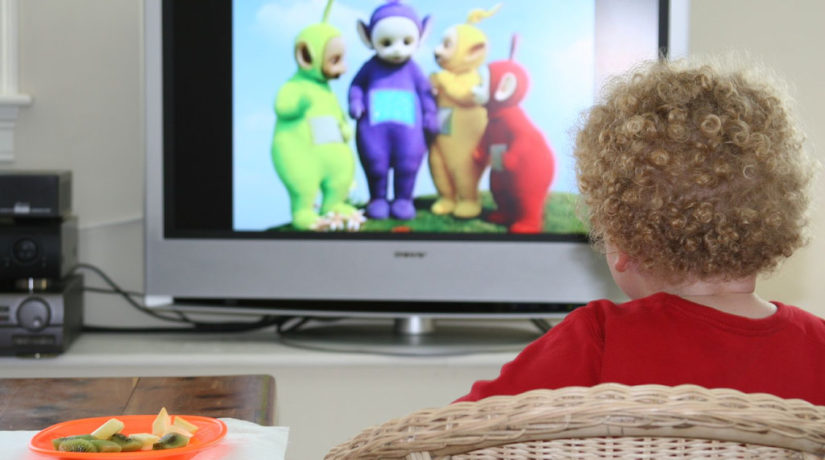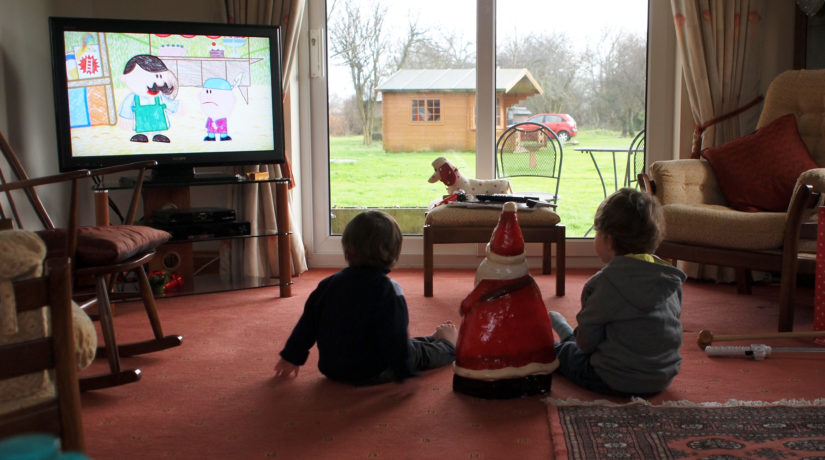Based on the results of nine studies, there are some warnings and misconceptions about the impacts of watching TV on infants’ and toddlers’ development.
Be wary of the long-term impacts of attentional problems: Early TV-viewing is associated with children’s attentional problems later at ages 7-8, even though the attentional problems may not appear while they are toddlers.
There are some myths about the negative impacts on communication skills. Based on the findings of three studies, early TV-viewing not exceeding 2 hours per day is neither beneficial nor detrimental to children’s communication skills. However, bear in mind that it may be better to wait until after 16 months to allow your child to watch TV because one study specifically indicated that even though TV-viewing after16 months is not associated with decreased communication skills, TV-viewing before 16 months is.
If your child is going to watch TV, make sure he/she watches child-targeted programs only: Viewing child-targeted TV programs is not detrimental to mental development. However, viewing adult-targeted TV programs at age 1 is associated with weaker thinking abilities at age 4.
Consider viewing high quality child-directed TV programs: There are a number of TV programs that are beneficial to children’s language development and communication skills. One study showed that watching programs such as Dora the Explorer, Blue’s Clues, Arthur, Clifford, and Dragon Tales resulted in greater vocabulary and higher expressive language scores. However, one study found that there are a number of TV programs which are detrimental to children’s language development or communication skills. Watching Teletubbies was related to less vocabulary and lower expressive language scores; watching Sesame Street was related to lower expressive language scores; and viewing Barney & Friends was related to less vocabulary but to more expressive language.
Finally, there is a myth about the association between TV-viewing and the early onset of myopia. According to a longitudinal study, as long as the child doesn’t sit too close to the screen, TV-viewing by toddlers is NOT associated with early onset of myopia. Actually, it is family history of myopia that is the greatest factor in the early onset of myopia.
Referenecs
- “Infants’ And Toddlers’ Television Viewing And Language Outcomes,” American Behavioral Scientist, 2005, by DL Linebarger, D Walker.
-
“Associations Between Media Viewing And Language Development In Children Under Age 2 Years,” The Journal Of Pediatrics, 2007, by FJ Zimmerman, DA Christakis, AN Meltzoff.
-
“Early Television Exposure And Subsequent Attentional Problems In Children,” Pediatrics, 2004, by DA Christakis, FJ Zimmerman, DL DiGiuseppe.
-
Associations Between Content Types Of Early Media Exposure And Subsequent Attentional Problems,” Pediatrics, 2007, by FJ Zimmerman, DA Christakis
- “Television Viewing In Infancy And Child Cognition At 3 Years Of Age In A Us Cohort,” Pediatrics, 2009, by ME Schmidt, M Rich, SL Rifas-Shiman, E Oken.


